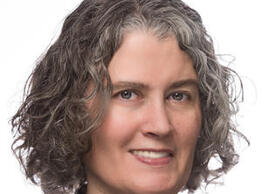
Earlier this month, Connecticut Congresswoman Rosa L. DeLauro cited research coauthored by Margaret L. Holland, PhD, MPH, MS in a letter to the Secretary of Agriculture advocating for the expansion of the Supplemental Nutrition Assistance Program (SNAP) during COVID-19 (coronavirus disease). Holland is a research scientist in nursing at Yale School of Nursing. More than 60 additional members of Congress also signed the letter.
The paper, “Availability of Grocery Delivery to Food Deserts in States Participating in the Online Purchase Pilot,” was published late last year and its findings have taken on new urgency during the pandemic. “Everyone now is more aware of how this can help people,” Holland said. The paper’s lead author is Eric J. Brandt, MD of the Yale School of Medicine.
The pilot program stems from the 2014 Farm Bill, increasing SNAP beneficiaries’ access to grocers in eight states. Online grocery purchasing and delivery services were available to more than 90% of urban food deserts and SNAP households within them in the participating states, but rarely available in rural food deserts. The research suggests that existing grocery delivery networks and online grocery-purchasing could strengthen access to groceries in many areas where it is most lacking. However, grocery delivery fees are not covered by SNAP. If the US Department of Agriculture followed the recommendation in DeLauro’s letter and extended SNAP benefits to cover both online purchasing and delivery, SNAP benefits would become more effective in food deserts.
“Getting delivery not only gives SNAP recipients access to more options, it keeps them and their families safer. It’s solving multiple problems at once,” Holland said.
Read the full text of the paper at JAMA Network Open here.
